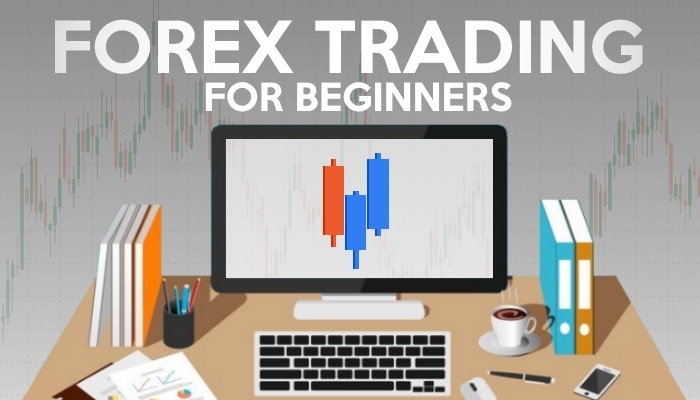The Ultimate Forex Trading Course for Learning Currency Markets
Recognizing the Fundamentals of Currency Exchange in Today's Global Market
In a significantly interconnected worldwide economy, understanding the basics of currency exchange is essential for stakeholders throughout various markets. Currency exchange rate, formed by a complex interplay of financial indications and geopolitical elements, have extensive impacts on international profession and financial investment strategies. As reserve banks apply influence and technical improvements improve currency trading, the effects for worldwide business are significant. Just how do these aspects coalesce to affect monetary preparation and risk monitoring? Comprehending the nuances of this vibrant market is not just useful-- it is crucial for navigating today's economic landscape.
The Essentials of Currency Exchange
Currency exchange is an essential aspect of the worldwide economic climate, facilitating international profession and financial investment. It includes the conversion of one money right into one more and is important for services, governments, and people who participate in cross-border purchases. The money exchange process takes area in the forex market (Forex), which is the biggest and most liquid financial market worldwide, running 24-hour a day, 5 days a week.
At its core, currency exchange is driven by supply and need dynamics. Currencies are traded in pairs, such as EUR/USD or GBP/JPY, and the exchange price in between them shows how much one currency is worth in regards to an additional. This rate varies continually as a result of trade flows, funding movements, and other market tasks.
Participants in the Foreign exchange market range from big banks and multinational firms to private capitalists and tourists. Each participant may have various goals, such as hedging against exchange price danger, hypothesizing on currency movements, or assisting in global acquisitions. Comprehending the basics of money exchange is essential for making informed choices in the global market, as exchange rates can dramatically influence the expense of products and solutions, investment returns, and economic stability.
Variables Influencing Exchange Rates
Currency exchange rate are formed by a complicated interplay of different financial variables, showing the loved one stamina and stability of national economic situations. Trick among these variables is rates of interest differentials. Higher passion rates provide loan providers much better returns relative to various other nations, drawing in more international capital and creating the money to value. On the other hand, inflation prices play a crucial duty; money in countries with reduced inflation rates often tend to value as buying power rises about higher-inflation economic climates.
Additionally, trade balances impact currency value. A country with a considerable profession surplus typically sees its currency value due to enhanced foreign demand for its products and solutions, while a dig this trade shortage can damage the currency.
Political stability and economic performance are vital as well; countries viewed as low-risk destinations for financial investment have a tendency to see their money value. forex trading course. Market speculation can likewise drive currency exchange rate variations, as investors expect future motions based upon current economic signs and geopolitical events. These elements jointly add to the vibrant nature of exchange rates in the worldwide market
The Role of Central Banks

Central banks additionally take part in foreign exchange treatments to fix excessive volatility or imbalances in currency exchange rate. These treatments may involve acquiring or offering international money to maintain a wanted exchange rate degree. Furthermore, reserve banks hold considerable forex gets, which can be released strategically to sustain their currency.

Technology and Money Trading
While reserve banks read this post here form the overarching landscape of money exchange, technological advancements have changed the mechanics of money trading itself. The proliferation of digital systems has equalized accessibility to fx markets, making it possible for specific traders to get involved together with institutional capitalists. Online trading platforms, furnished with real-time information and analytical tools, help with notified decision-making and have actually added to raised market liquidity.
Mathematical trading, powered by sophisticated software program, has actually transformed the rate and effectiveness of currency trading. Algorithms carry out trades based on predefined criteria, lessening human intervention and reducing the time needed to capitalize on market activities.
Blockchain modern technology additionally guarantees a transformative effect on currency trading. By guaranteeing transparency and decreasing purchase prices, blockchain can improve settlement procedures, potentially mitigating threats connected with conventional trading methods. Cryptocurrencies, underpinned by blockchain, have actually introduced a brand-new dimension to currency trading, prompting market individuals to adjust to a progressing financial environment. As innovation continues to progress, its influence on money trading will likely grow, shaping future market characteristics.
Influence On Global Profession
In the interconnected landscape of international profession, money exchange plays a pivotal role in forming financial connections between nations. A strong currency can make a nation's exports extra pricey and less attractive on the worldwide stage, potentially lowering market share.
Money fluctuations can additionally lead to financial uncertainties, complicating long-lasting planning for multinational firms. Services frequently hedge against these threats via economic tools to support costs and revenues. Additionally, exchange rates affect international straight investment (FDI) decisions, as capitalists my company seek desirable problems to optimize returns, affecting funding streams across borders.
Furthermore, governments aim to maintain secure exchange rates to cultivate predictable trading problems, often intervening in forex markets to accomplish financial goals. Main banks might change rate of interest rates or apply monetary plans to influence money strength, thus impacting trade characteristics.
Final Thought
A thorough grasp of currency exchange principles is critical for navigating the complexities of the worldwide market. Exchange prices, formed by passion prices, inflation, and economic development, are pivotal in identifying currency assessments.